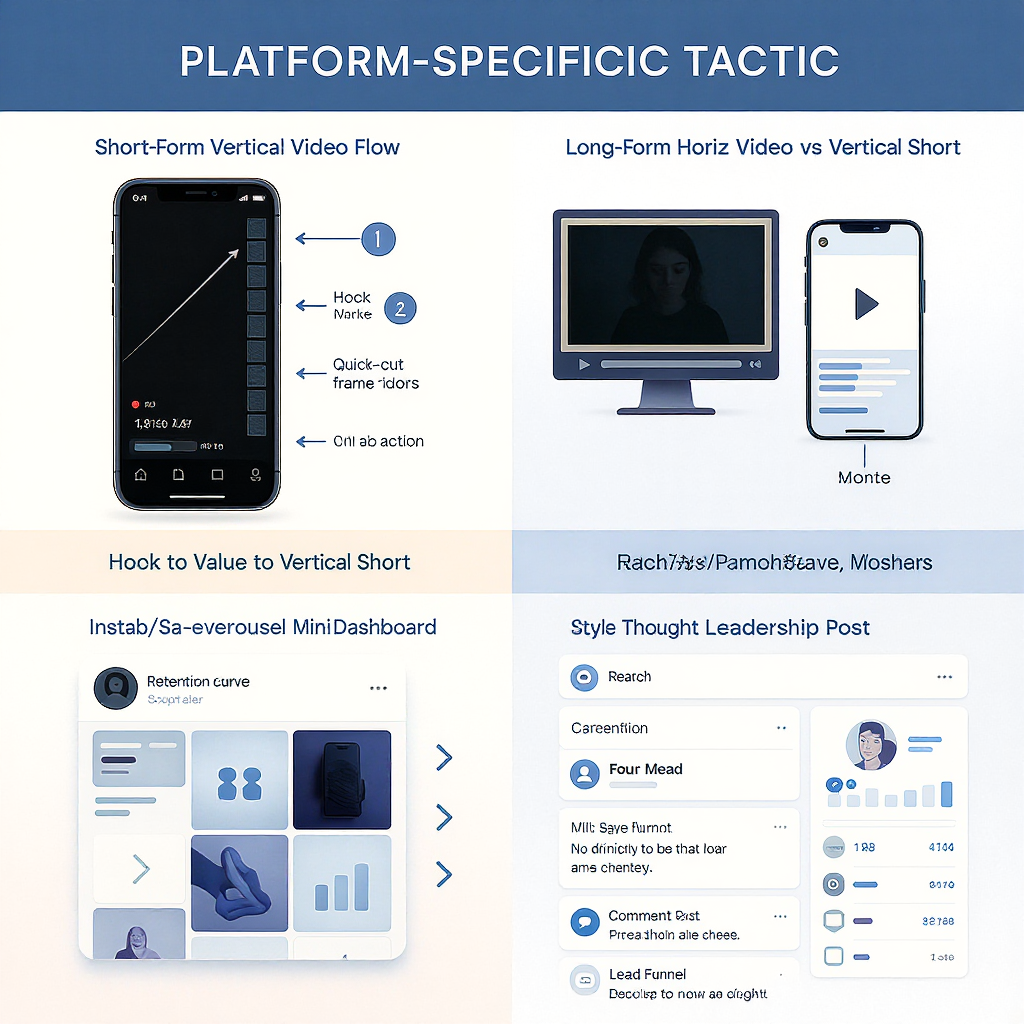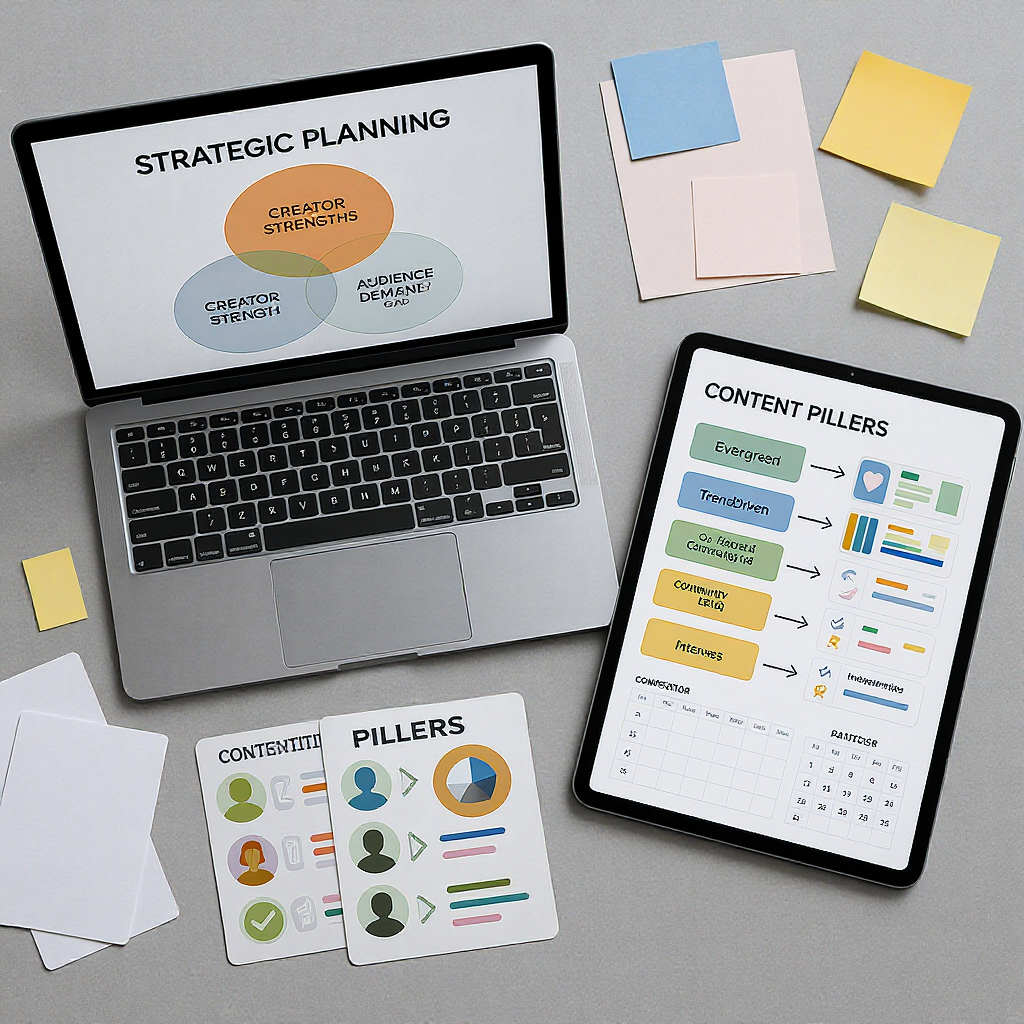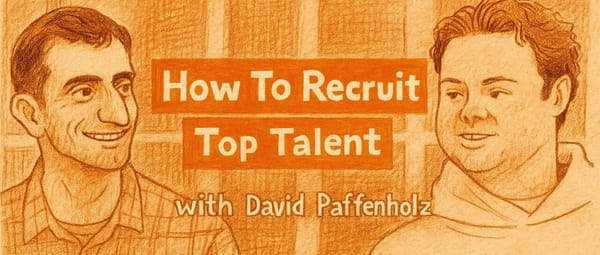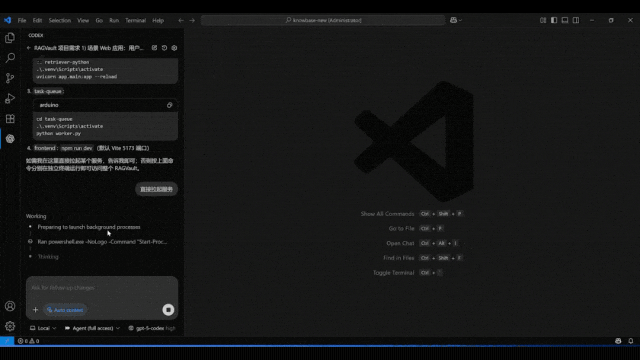What Is a Social Content Creator? Skills, Tools, Monetization, and a Repeatable Playbook
Learn what a social content creator does and how to win: positioning, pillars, tools, workflows, analytics, and monetization in a repeatable playbook.

This practical guide distills the core responsibilities, systems, and tactics of a modern social content creator into a clear, actionable playbook. You’ll find frameworks for positioning, content pillars, platform-specific execution, production workflows, monetization, analytics, and professional standards. Use it as a reference to level up consistency, quality, and growth without sacrificing your unique point of view.
What Is a Social Content Creator? Role Decoded

A social content creator is much more than “someone who posts on the internet.” Think strategist, storyteller, community builder, and brand partner rolled into one. They translate business or personal brand goals into platform-native stories that earn attention, build trust, and drive measurable outcomes.

- Strategy: Clarifies audience, positioning, goals, and channel mix. Chooses what not to post as carefully as what to publish.
- Storytelling: Crafts narratives with emotional hooks, crisp structures, and strong calls to action.
- Community: Listens, replies, moderates, and seeds conversations. Turns followers into contributors.
- Brand alignment: Keeps every asset on-message and on-voice, honoring visual, tonal, and legal guidelines.
Success looks like durable growth loops (audience → engagement → shares → reach → feedback → better content), not just viral spikes.
Find Your Niche and Audience: Positioning, Personas, and Competitive Gaps
Start with positioning: who you serve, the problem you solve, and why you’re different. Then model target personas and map the landscape to find white space.
Steps:
- Define your unfair advantage: skills, lived experience, proprietary knowledge, unique format.
- Persona research: interviews, comments mining, subreddit lurking, search/autocomplete, and competitor FAQ review.
- Competitive gap analysis: inventory what top creators post, note repetitive angles, and flag neglected questions or formats.
- Hypothesis: “I will help [persona] achieve [outcome] with [format] that emphasizes [differentiator].”
Persona sketch (JSON template):
{
"name": "Ops Olivia",
"goals": ["Automate reporting", "Earn promotion", "Reduce meetings"],
"pains": ["Messy data", "Tool sprawl", "No exec visibility"],
"channels": ["LinkedIn", "YouTube"],
"content_triggers": ["Before/after dashboards", "Playbooks", "Career stories"],
"words_to_use": ["systems", "throughput", "SLA"],
"words_to_avoid": ["hustle", "guru"]
}Content Pillars and Calendar: Evergreen, Trend-Driven, and Community-Led
Anchor your output in 3–5 pillars that match your positioning. Balance compounding evergreen content with timely trend-hijacks and community prompts.
- Evergreen: tutorials, frameworks, playbooks, case studies. Aim for 40–60%.
- Trend-driven: remixes of relevant audio/memes/news with your POV. 20–30%.
- Community-led: Q&A, duets/stitches, AMAs, user stories, polls. 20–30%.
Content pillar matrix:
| Pillar | Goal | Primary Format | Cadence | Success Signal |
|---|---|---|---|---|
| How-To Systems | Searchable authority | YT long-form + blog | Weekly | Search traffic, watch time |
| Teardowns | Trust via expertise | Carousels + shorts | Biweekly | Saves, shares |
| Community Q&A | Engagement | Lives + stitches | Weekly | Comments quality |
| Opinions | Memorability | LinkedIn posts | 2–3x/week | Reactions from ICPs |
Example monthly calendar (YAML):
weeks:
- week: 1
posts:
- platform: YouTube
type: Long-form
title: "Automate Monthly Reporting in 30 Minutes"
- platform: Instagram
type: Carousel
title: "5 Dashboard Mistakes"
- platform: TikTok
type: Trend remix
hook: "If your boss asks for 'one more report'..."
- week: 2
posts:
- platform: LinkedIn
type: Thought leadership
title: "Throughput over Busyness: A Manager's Playbook"
- platform: Shorts
type: Tutorial
title: "3 Airtable Formulas"
- platform: TikTok
type: Q&A
prompt: "Stitch: 'How do I reduce meeting load?'"Platform-Specific Tactics
TikTok, Reels, and Shorts
- Hook in 0–2 seconds: movement, pattern break, on-screen text.
- Framing: 9:16, big captions, 120–150 wpm voiceover.
- Structure: hook → promise → steps → payoff → CTA (comment/save).
- Add “open loops” to boost retention: tease Step 3 at Step 1.
- Use stitches/duets for community and relevance.
- Captions: short keyword phrase + 2–4 relevant hashtags; avoid stuffing.
- CTA: “Comment ‘template’ for the file” to spur comments and DM workflows.
YouTube Long-Form vs. Shorts
- Long-form:
- Thumbnail + title as a pair; A/B test early.
- First 30 seconds: prove value, avoid logo intros.
- Chapters, pattern interrupts every 30–60 seconds, B-roll overlays.
- Aim for 45–60% average view duration; optimize for session time.
- Shorts:
- Re-edit for YouTube: different captioning, avoid TikTok watermark.
- Use vertical-specific hooks; lead to a related long-form video via description/link.
Instagram Carousels
- Slide 1: bold promise or contrarian statement.
- Slide 2–8: atomic insights; no walls of text; use 1 big idea per slide.
- Slide 9–10: recap + CTA (save, share, DM keyword).
- Design for saves: checklists, templates, “do this, not that.”
LinkedIn Thought Leadership
- First line (above the fold) must stand alone as a hook.
- Mix narrative (story), actionable (framework), and contrarian takes.
- Tag sparingly; prioritize comments over likes; ask a specific question.
- Native documents (PDF carousels) for frameworks; pin featured posts.
Production Workflow: From Idea to Publish
A repeatable workflow prevents burnout and raises quality.
Phases:
- Ideation: collect sparks from comments, DMs, search trends, and competitor gaps.
- Scripting: write “spoken” scripts for short-form; outlines or beats for long-form.
- Shooting: batch by setup; lock in lighting, audio, and framing.
- Editing: template intros/lower thirds; color and sound presets; branded end-cards.
- Batching: produce 2–4 weeks of shorts in a single day when possible.
- Repurposing: long → short clips; short → carousel; post → newsletter.
- QA: content, brand, legal, and technical checks before scheduling.
QA checklist (copy/paste):
[ ] Hook clarity in first 2s
[ ] Promise delivered quickly
[ ] Accurate facts and sources credited
[ ] Captions/callouts readable on mobile
[ ] Audio levels -3 to -6 dB
[ ] No watermarks/copyrighted assets
[ ] Brand voice & visual guidelines
[ ] CTA aligned with goal
[ ] End-screen/cards set (YouTube)
[ ] UTM links & tracking addedFile naming convention:
2025-09-Launch-Plan_youtube-long_v1.mp4
2025-09-Launch-Plan_short-ig_v2_caption.txt
assets/broll_meeting-room_1080p.movTool Stack: Plan, Produce, Publish, Measure
Choose tools that match your stage and workflow. Start lean, then specialize.
| Category | Tools | Free Tier | Notes |
|---|---|---|---|
| Planning & Calendar | Notion, Trello, Airtable | Yes | Content database, briefs, asset tracking |
| Scheduling | Buffer, Later, Hootsuite, Meta Studio | Limited | Prioritize native posting for reach-sensitive platforms |
| Design | Canva, Figma | Yes | Carousel templates, brand kits |
| Video Editing | CapCut, Adobe Premiere, DaVinci Resolve | Yes | Shorts templates, auto-captions, color presets |
| Audio | Descript, Audition | Limited | Filler word removal, noise cleanup |
| Analytics | Native insights, TubeBuddy, Google Analytics | Yes | Custom dashboards and cohort tracking |
| Link in Bio | Beacons, Linktree, Campsite | Yes | UTM-enabled funnels |
| AI Assistants | Chat-based tools, transcription, thumbnail ideation | Varies | Use for drafts, research triage, and QA; fact-check outputs |
Responsible AI use:
- Never fabricate quotes or stats; cite primary sources.
- Disclose synthetic voice or images when used.
- Use AI to accelerate (outlines, tags, transcripts), not to replace your unique POV.
Monetization Models and Revenue Diversification
A resilient social content creator stacks multiple income streams.
- UGC packages: produce on-brand assets for companies to run on their channels.
- Brand partnerships: sponsored posts, integrations, whitelisting/paid amplification.
- Affiliates: trackable product links; negotiate rev-share plus flat fee.
- Paid communities: Discord/Slack with office hours, templates, and workshops.
- Digital products: templates, courses, ebooks.
- Licensing: sell rights to footage, b-roll, or past posts.
- Services: audits, consulting, production retainers.
Monetization overview:
| Model | Pros | Cons | Key Metrics |
|---|---|---|---|
| UGC | Scalable, no audience required | Rounds of revisions, usage clauses | Turnaround time, usage fees, LTV |
| Sponsorships | High margin, prestige | Audience trust at risk if misaligned | eCPM, CTR, retention impact |
| Affiliates | Passive potential | Commission dependence | EPC, conversion rate, AOV |
| Paid Community | Recurring revenue | Moderation overhead | Churn, engagement rate |
| Digital Products | High leverage | Launch-heavy, support needed | Gross margin, refund rate |
| Licensing | Non-dilutive | Contract complexity | Usage term value |
UGC starter packages (example):
- Starter: 3x 15–30s vertical videos, 1x photo set, basic usage 30 days — $1,000–$2,000
- Growth: 6x verticals, 3x photos, 90-day paid usage, 1x reshoot — $3,000–$5,000
- Scale: 10x verticals, 5x photos, 6-month usage across paid + whitelisting — custom $8,000+
Note: Price for usage rights separately; whitelisting (advertiser runs ads through your handle) commands a premium.
Analytics and Growth Loops
Define your KPIs and build feedback systems that improve content quality over time.
Primary KPIs by goal:
- Awareness: reach, unique viewers, impressions per follower.
- Engagement: saves, shares, comments-to-views ratio.
- Retention: average view duration, completion rate, drop-off timestamps.
- Conversion: CTR of links, affiliate EPC, email signups.
A/B testing:
- Thumbnails/titles: run 2–3 variations in first 24–72 hours (YouTube).
- Hooks: publish near-identical shorts with different first lines; compare 3-second view rate.
- CTAs: test “comment keyword” vs. “save/share” prompts.
Experiment log (CSV):
date,platform,objective,variable,variant_a,variant_b,result_a,result_b,insight,next_action
2025-09-01,YouTube,Retention,Thumbnail,Face+bold text,No face+minimal text,7.1% CTR,4.8% CTR,Human face wins,+A/B new title
2025-09-03,TikTok,Hook,First line,"Stop scrolling: automate this","If you do reporting, watch this",38% 3s,44% 3s,Specific beats generic,Use persona languageContent audits (monthly):
- Top and bottom 10% by your North Star metric.
- Extract repeatable elements: hook style, topic, pacing, visual grammar.
- Kill or fix: prune underperforming series; double down on winners.

Legal and Ethical Essentials
Operate like a pro to protect your audience, partners, and yourself.
- Disclosures (FTC/ASA):
- Use clear labels at the start: “Ad,” “Sponsored,” “Paid partnership with @brand.”
- In video: on-screen text + verbal disclosure; in text: first 3 lines.
- Music and footage licensing:
- Use platform libraries or properly licensed tracks (e.g., royalty-free subscriptions).
- Keep a license folder and receipts; avoid “no rights reserved” assumptions.
- Privacy and consent:
- Get written consent for identifiable people, especially minors (COPPA considerations).
- Blur faces/plates; don’t reveal private data or locations without permission.
- Data and tracking:
- Disclose affiliate links; use UTM parameters responsibly.
- Respect community data (no resharing private DMs without explicit consent).
- Brand safety:
- Align with advertiser categories; keep political/sensitive topics in mind per partner rules.
Disclosure snippets (copy/paste):
TikTok/IG: Paid partnership with @Brand. Affiliate links may earn me a commission.
YouTube: This video is sponsored by Brand. Some links are affiliate links. Opinions are my own.
LinkedIn: Ad — Partnering with Brand to share [topic]. #adCareer Path and Portfolio
Treat your creator profile like a startup: proof, packaging, pipeline.
- Case studies: before/after metrics, your process, assets, and outcomes. Include retention graphs and CTR improvements where possible.
- Media kit: audience demographics, platforms, reach, engagement, past partners, testimonials, offerings, rates (or “starting at”), contact.
- Rate card basics: price for deliverables, usage rights, exclusivity, rush fees, and revisions.
- Outreach:
- Warm: network, community, referrals.
- Cold: targeted emails to brand managers/CMOs with a sharp point-of-view.
Portfolio structure (Notion or site):
- About + positioning
- Best-of gallery (tagged by pillar/platform)
- Case studies with metrics
- Services + packages
- Contact form and booking link
Outreach email template:
Subject: UGC that cuts CPA for [Brand]’s [product]
Hi [Name],
I create performance UGC in [niche]. Noticed your [recent ad/launch] and a gap in [angle].
In a recent test with [similar brand], my 3-hook concept lifted CTR by 28% and reduced CPA by 19%.
Ideas for [Brand]:
1) Objection-busting demo (15s) — shows [benefit]
2) Duet-style testimonial (20s) — social proof
3) “Day-in-the-life” (30s) — context + CTA
Open to a quick call to share examples and pricing?
Best,
[You]
[Portfolio link]Common pricing mistakes and red flags:
- Underpricing usage rights and whitelisting.
- Unlimited revisions in scope.
- No kill fee for canceled shoots.
- Accepting net-90 from small brands.
- Red flag: requests for unpaid “test videos,” no contract, or vague “exposure.”
The Repeatable Playbook: Weekly Sprint for a Social Content Creator
Operate on sprints to maintain consistency without burnout.
Weekly sprint (YAML):
monday:
- Review analytics dashboard (60m)
- Pull 5 insights & update idea board (30m)
- Write 6 short-form scripts (90m)
tuesday:
- Shoot 6 shorts + 1 long-form A-roll (180m)
- Capture B-roll library (45m)
wednesday:
- Edit 6 shorts (180m)
- Design 1 carousel (45m)
- Create thumbnails (45m)
thursday:
- Edit long-form (180m)
- Write LinkedIn posts x2 (45m)
- QA & schedule all (60m)
friday:
- Community engagement block (60m)
- Partnerships outreach (45m)
- Experiment setup (thumbnails/hooks) (45m)SOP snapshots:
- Ideation: mine comments and search questions; tag by pillar; score 1–5 for impact and effort.
- Script template:
HOOK (1 line)
PROMISE (1 line)
STEP 1 (6–10s)
STEP 2 (6–10s)
STEP 3 (6–10s)
PAYOFF (5s)
CTA (comment/save/follow)Measurement cadence:
- Daily: respond to comments; check top 10 posts’ first-hour stats.
- Weekly: sprint review; experiment results; content backlog groom.
- Monthly: audit pillars; refresh intros; retire weak series.
Conclusion
A high-performing social content creator blends creative taste with operational rigor. Pick a sharp niche, establish clear pillars, and master platform-native tactics. Build a production system and tool stack that compounds your output. Monetize with diversified streams and protect your brand with solid legal and ethical practices. Finally, run your content like a product: experiment, measure, learn, and ship again. Consistency plus curiosity is the engine; your unique perspective is the fuel.
Summary
- Define a crisp positioning, build 3–5 content pillars, and plan with a lightweight calendar.
- Execute natively per platform, focusing on strong hooks, clear structure, and retention tactics.
- Systematize production (batching, templates, QA), measure with goal-aligned KPIs, and iterate via experiments.
- Diversify revenue across UGC, partnerships, affiliates, products, and services while maintaining disclosures and brand safety.



